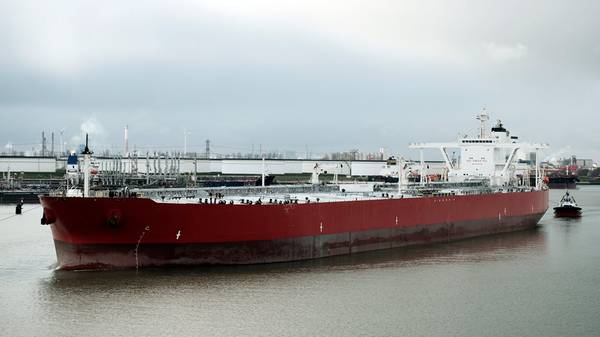
Traders are slated to load record volumes of diesel on very-large crude carriers (VLCCs) from Asia to West of Suez markets in August, a trend likely to continue next month, data from trade sources and shiptrackers showed.
Five supertankers - Maran Leo, Sea Lion, Nissos Keros, Nissos Nikouria and Atherina - loaded 9 million barrels or more of diesel from the Middle East and India, bound for European and African markets, a level unseen on VLCCs in the seven years since such data has been tracked, according to Kpler shipping data and two trade sources.
Traders are using VLCCS to carry refined fuels from the Middle East and India to markets to the west because of a price advantage in dirty tanker freight rates versus clean tanker rates, said LSEG Oil Research analysts in an email.
The five vessels were chartered for August by trading units for Abu Dhabi National Oil Company (ADNOC) and TotalEnergies, and major trader Trafigura, the data showed.
ADNOC and Trafigura both declined to comment. TotalEnergies did not respond to a request for comment.
The switch to VLCCs for diesel reflects weaker-than-usual Asian crude demand, especially from China, making the big ships available to load other cargoes, a Singapore trade source said.
Diesel is typically carried on medium- or long-range ships with capacities of 300,000-700,000 barrels, while VLCCs can carry around 2 million barrels of crude.
"The Atlantic Basin diesel market has become very competitive, so for East of Suez players economies of scale are more important than ever and this is where VLCCs come into play," said Vortexa's chief economist, David Wech.
Freight costs to charter VLCCs - excluding cleaning costs - on the Middle East-Europe route were at $10 per ton, compared with clean tanker costs at around $50 per ton on a similar route, LSEG and SSY Tanker data showed.
SEPTEMBER LOADINGS
This shift to VLCCS began as early as June and is continuing despite earlier expectations that it would slow.
The shipments will ease an Asian supply glut and help cushion near-term market weakness, three trade sources said, adding that they will also cover West of Suez supply shortfalls ahead of seasonal refinery maintenance and winter peak demand.
European refineries are set to take a total of 900,000 barrels per day (bpd) of crude distillation capacity offline this September, according to Hillary Stevenson, senior director at consultancy IIR Energy.
"Given the still weak Asian gasoil fundamentals, it would not be unreasonable to think that traders would continue to send cargos westwards, although whether this would be onboard VLCCs would be highly dependent on freight rates," said LSEG Oil Research analysts.
In September, three more VLCCs - Plata Lucky, Nissos Rhenia and Antonis I.Angelicous - are slated to pick up diesel from the Middle East or Southeast Asia to head west, three trade sources and shiptracking data showed.
(Reuters - Reporting by Trixie Yap in Singapore and Robert Harvey in London; Editing by Tony Munroe and Tom Hogue)


